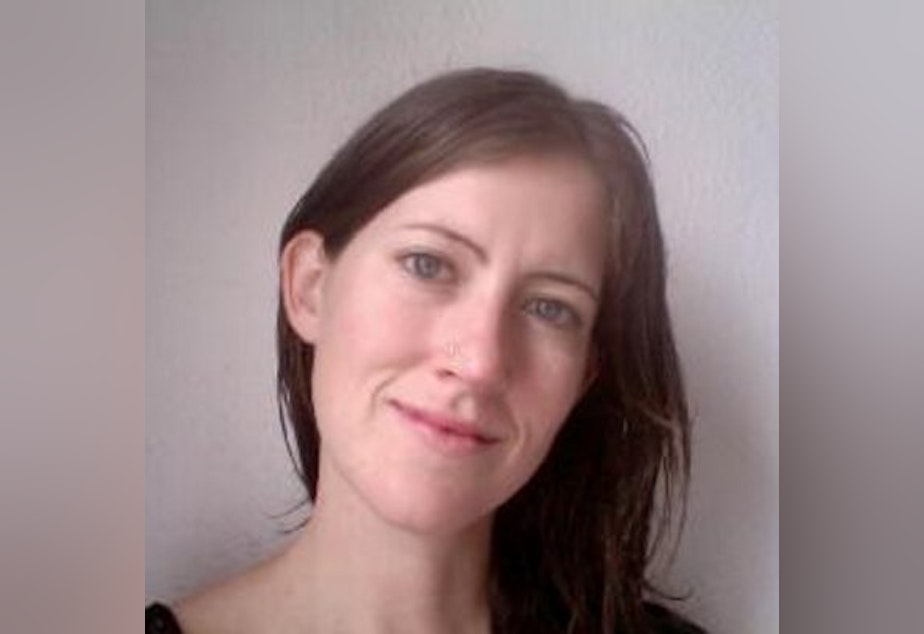'It's embarrassing': A Seattle doctor confronts racial bias in medicine

Dr. Rachel Pearson got her start working with poor people in Texas, many of them people of color.
Which got her thinking about how doctors learn by making mistakes with those communities.
"We need to keep in mind what we owe to the people who have contributed the most to medical training and medical knowledge," she said.
Pearson is currently a medical resident at Seattle Children's, which she says is much different from her home state of Texas, where she worked in hospitals and clinics. She writes about that experience in her new book, "No Apparent Distress: A Doctor's Coming-of-Age on the Frontlines of American Medicine."
Pearson spoke with Ann Dornfeld from KUOW's Race and Equity Team.
Sponsored
PEARSON: Students and residents learn from the poor. We learn our skills in poor communities and we make our mistakes in those communities. That means that now that I'm happily insured, and see my own private doctor, I'm seeing a doctor who has already made most of the mistakes that she's going to make, and the burden of her training fell on a much more vulnerable community.
I think that, as we consider health care policy, and as we consider the direction of health care in this country, we need to keep in mind what we owe to the people who have contributed the most to medical training and medical knowledge.
DORNFELD: What is it like to see such disparate health outcomes for people of color and low income people in this country?
PEARSON: It's embarrassing. It belies what I would like to believe about my profession and my society.
The disparate outcomes that are the most embarrassing to me are the ones that come directly from physician racial bias, which is known to independently influence health outcomes. So people with the same income, and the same access to care, and the same initial health status, have worse health outcomes independently because of race.
Sponsored
There's a study at the VA here in Washington state that looked at VA patients with diabetes and found that African-American patients were less likely to receive the standard of care treatment: yearly eye exams, having their hemoglobin A1C checked every three months. They also had shorter visits with their providers. And all of these disparities were linked to physician discomfort with taking care of minority patients. So bias alone has significant, and in some cases, deadly consequences for patients of color.
As a physician, I find that unconscionable. It is not the kind of data that we can sit on.
DORNFELD: How do you see that it can be fixed?
PEARSON: Most of the efforts happening right now, and these are good things, center around individual physicians acknowledging bias and using what are essentially mindfulness techniques to address it.
So we are taught to, number one look into ourselves, and know that we may be biased. To take this test called the Implicit Association Test that measures bias of different sorts. And to slow down — deliberately slow down — in patient encounters when we feel uncomfortable. The human tendency when you feel uncomfortable is to run away. And physicians need to do the exact opposite, which is slow down and ask more questions.
Sponsored
Now, all those efforts are incredibly important. But I do not think that individual physicians alone can fix the fundamental problems of racial bias in medicine and of racial health injustice. We also need policy. We need MCAT-blind policy to get more students of color into medical school. We need robust economic support for physicians who are practicing in communities of color. And we need ongoing medical education for those docs specifically aimed at the communities they serve, and driven by the communities they serve.
DORNFELD: Seattle is a wealthy city, with a lot of access to health care, even for low income people in a lot of ways. What do you see as inequities that still present, even at Seattle Children's?
PEARSON: I came to Seattle to see what it's like to practice in a place where the kids I care for could get all the resources they need. And it is a huge contrast between practicing here, where Medicaid has been expanded, there is robust access to care, and where the city and the county have invested in programs like Birth-to-Three that ensure that vulnerable kids can get early childhood services that they need.
That being said, with more and more working class and poor families being pushed out of Seattle and out of King County, the communities most in need of those services may not be able to access them.
This transcript was edited for length and clarity.

